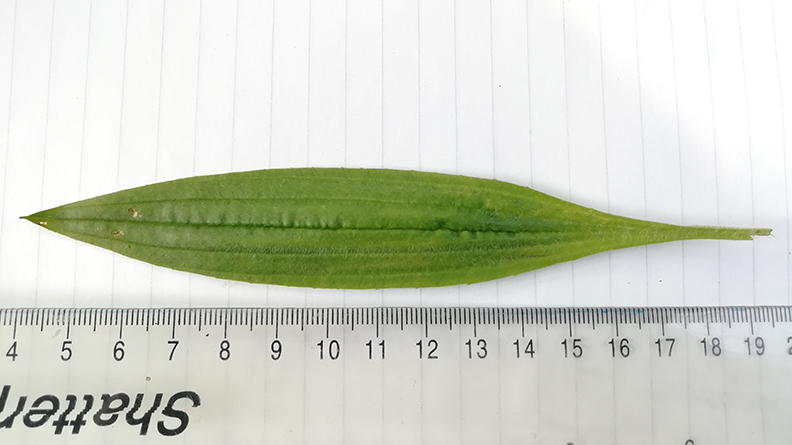Ribwort plantain identification and control
Effective strategies for identifying and managing Ribwort plantain in turf.
On this page:
Ribwort plantain Plantago lanceolata
A common perennial weed often seen in lawns and also referred to as narrowleaf plantain.
Appearance
The dark green leaves of Ribwort plantain are long (10-30 cm), leathery and strongly ribbed. They grow from a central growing point to form a rosette.

Leaf size comparison
Flowers are similar to those of Greater plantain and are usually produced between April and September. A cone (10-20 mm long) of greenish-white small flowers are borne on grooved stalks. Each cone turns brown as the flowers develop into seeds.
Growth habit
Ribwort plantain has a fibrous root system that can extend deep into the ground. It usually reproduces via seed.

Plantago lanceolata.
Conditions that favour its development
This weed thrives in alkaline conditions and can tolerate dry, compact soils.
Cultural control
- Mow regularly and at a sensible cutting height; establish a good fertiliser programme to support healthy growth and strong root development; water only if required; maintain good drainage and encourage organic matter breakdown with regular aeration and top dressing; rake/scarify to remove moss and encourage an upright growth habit.
- Aerate the soil regularly and to different depths to prevent compaction to give the turf the best chance of out-competing this weed. Heavily used areas such as pathways may need additional deep aeration to keep soil compaction at bay.
- Plants can be removed by hand using a knife or similar tool. Ensure that the entire plant is removed. Roots are strong and don’t break easily so usually come out in-tact.
- Mow regularly to prevent the development of flower heads/seeds.
- Raking/brushing prior to mowing will help to lift flower spikes for removal when mowing.
Chemical control
Ribwort plantain is usually easily controlled with any of the selective weedkillers available on the market.
A single application is usually all that is required as long as the application is made at a time when both the weed and turf are growing strongly (April- October).












